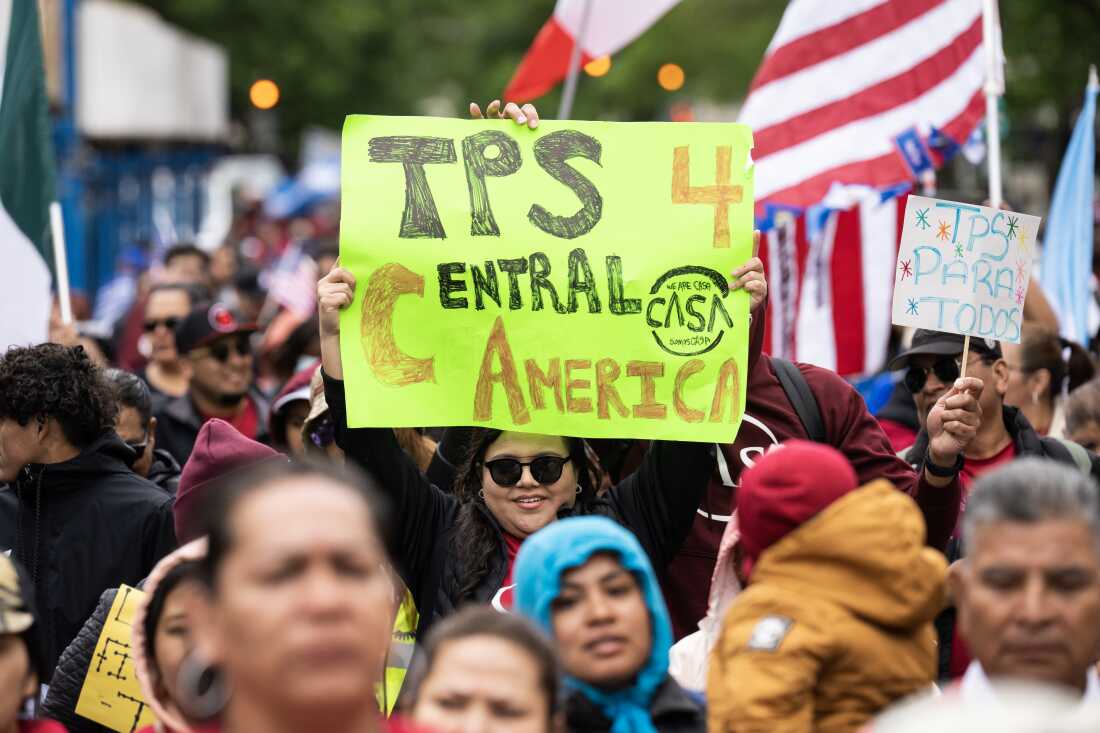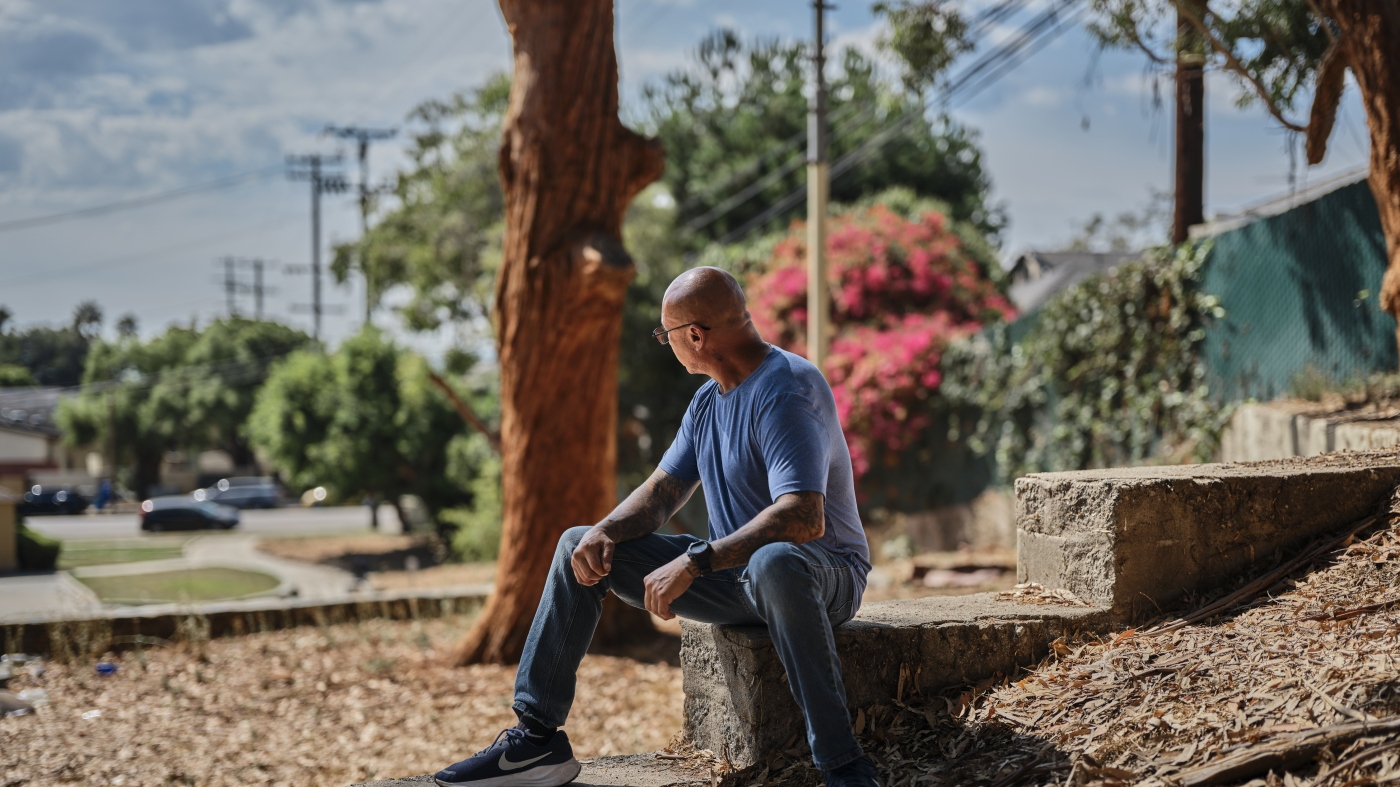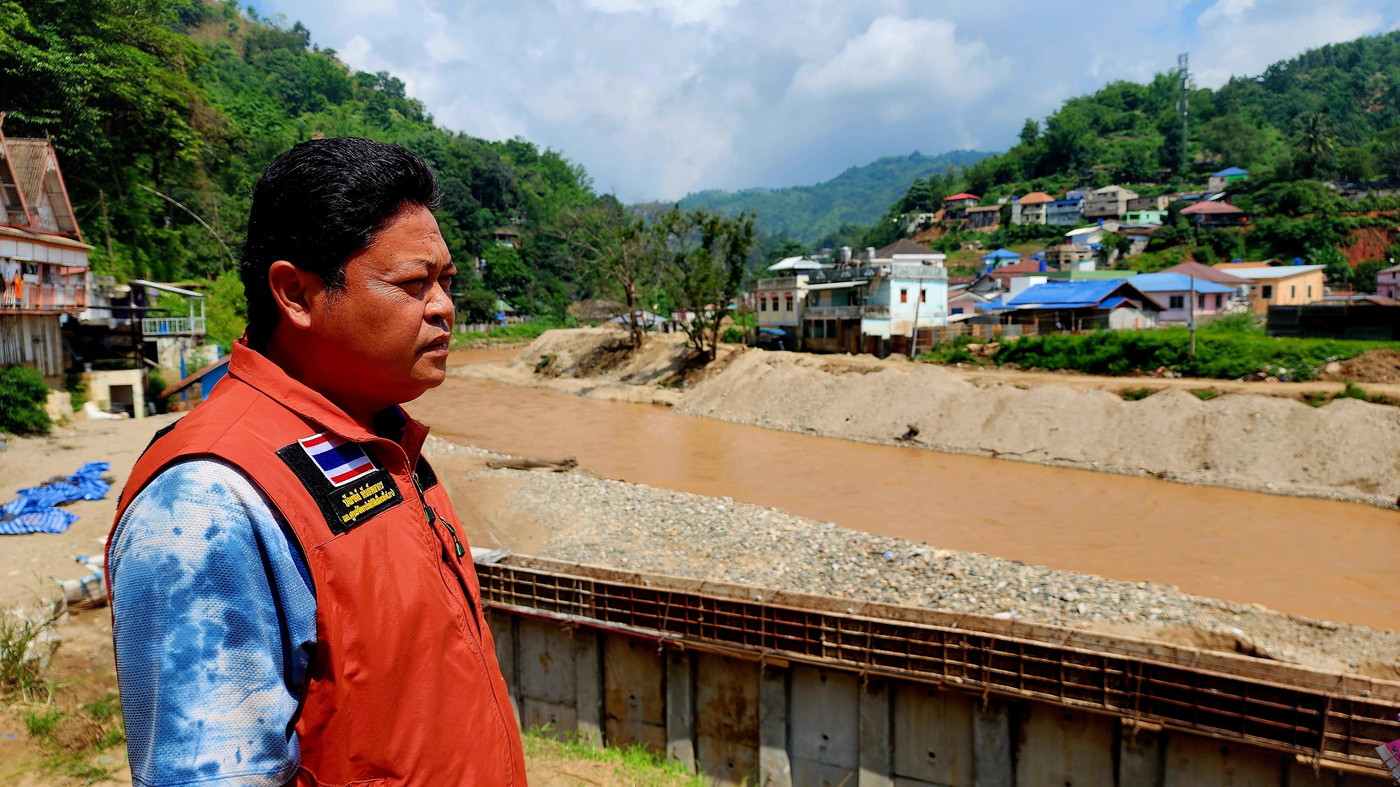
Demonstrators march in Washington, D.C. to demand Temporary Protected Status for Nicaragua, Honduras, Guatemala, and El Salvador on May 1, 2023. Tom Williams/CQ-Roll Call, Inc via Getty Images hide caption
toggle caption
Tom Williams/CQ-Roll Call, Inc via Getty Images
The Trump administration is ending temporary legal protections for tens of thousands of migrants from Honduras and Nicaragua, citing improved conditions in both countries.
Temporary Protected Status, or TPS, is a federal program that provides deportation protection and grants work permits to people from certain nations affected by war or natural disasters. Its revocation is part of a slate of Trump administration actions to limit legal protections for certain categories of migrants, including those with temporary status or people seeking asylum.
Honduras and Nicaragua first received TPS designation in 1999 following Hurricane Mitch, a Category 5 storm that struck Central America and killed over 10,000 people in the fall of 1998.
President Trump revoked the protections for people from those two countries during his first term. The Biden administration later reinstated them. About 4,000 people from Nicaragua and 72,000 people from Honduras had been covered by TPS.
On Monday, the Department of Homeland Security said Secretary Kristi Noem reviewed the conditions in both countries and determined they have recovered enough from the 1999 hurricane for TPS recipients to safely return. The protections are slated to end in September.
The Secretary of Homeland Security has the power to grant TPS to immigrants of a specific country if conditions there "temporarily prevent the country's nationals from returning safely, or in certain circumstances, where the country is unable to handle the return of its nationals adequately," according to the agency's website.
"Temporary Protected Status was designed to be just that—temporary," Noem said in a press release about the end of TPS for Honduras.
Honduras and Nicaragua are the latest countries to be stripped of TPS designation since Trump's return to office. The administration has also sought to end protections for thousands of TPS holders from Afghanistan, Cameroon, Nepal, Haiti and Venezuela.
Those attempts have faced some legal pushback. In March, a federal judge in San Francisco paused the administration's plan to revoke TPS for Venezuelans, though the Supreme Court halted that decision in May. Last week, a federal judge in New York blocked the Trump administration's attempt to end TPS for Haitians ahead of its scheduled expiration in February, calling it unlawful.
In its announcements, DHS encouraged individuals from Honduras and Nicaragua to self-deport through the Customs and Border Protection program.
"Take advantage of a safe, secure way to self-deport which includes a complimentary plane ticket, a $1,000 exit bonus, and potential future opportunities for legal immigration," the DHS said in a press release.

 3 months ago
34
3 months ago
34

















































